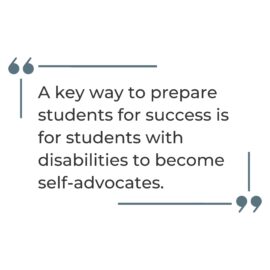For children with disabilities, school can be a stressful and overwhelming time. The Georgia Council on Developmental Disabilities (GCDD) sat down with Leslie Lipson, an attorney and director of the Georgia Coalition for Equity in Education, to discuss how students, parents, and primary school faculty can navigate the process of laying out the individualized education program (IEP) for students with disabilities to receive an educational experience that meets their unique needs and equips them for a future of self-advocacy and success.
“An IEP is a legal document that says that an eligible child is a student with a disability and that they have certain legal protections and legal rights,” Lipson said. “Students who are eligible for special education and related services under the Individuals with Disabilities Education Act (IDEA) are involved in the creation and implementation of an IEP. The IEP is a legally mandated plan which outlines what that education will look like and provides necessary accommodations.”
A large part of the IDEA is the Child Find Mandate, which is the legal obligation of schools to seek out and identify students with disabilities and provide them with an appropriate education. Often, this process begins with parents, teachers, or social workers identifying struggles in a student’s studies. After a student with a disability is identified, the eligibility process begins.
Eligibility and Evaluation
“The eligibility process involves specific evaluations done by a school psychologist, but it can also take information from the student’s medical doctors and classroom teachers,” said Lipson. A very successful evaluation also extensively involves parents and the student in question to give a full picture of the child’s needs.”
The evaluation process culminates in an eligibility meeting with the school to discuss findings and decide whether the student is eligible for an IEP. If the student is eligible, a plan will be written. Much of Lipson’s work involves implementing IEPs, ensuring that students with IEPs receive education and resources that align with their plan.
“I never get called by people with bad plans when their education is going well,” said Lipson. “People [who call] either have really well-written or badly written plans, but regardless, the education is not going well.” In other words, even a well-written plan is ineffective if it is not followed.
Lipson says that special education is often loaded with paperwork, which is usually used to document the student’s success. However, what matters to parents and students is the experience and quality of education in the classroom.
The Student’s Role as Self-advocate
The IEP process does not come without challenges. According to Lipson, one of the most prominent obstacles for students with disabilities and their parents, teachers, and school administrators is ableism. Ableism is the discrimination of and social prejudice against people with disabilities based on the belief that typical abilities are superior. This can take many forms, she says, such as a teacher having lower expectations regarding what is possible for students with disabilities.
“The truth is, we all live in an ableist society, and it is easy for us to unconsciously absorb a lot of those ideas,” explained Lipson. “We have to work hard to overcome ableist ideas in our daily lives, like the idea that intelligence is measured by a test, for example.”
 A key way to prepare students for success is for students with disabilities to become self-advocates. Lipson believes it is important for students to participate in their IEP meetings, and she advises against being too narrow in terms of what this participation may entail. In working with students with disabilities, Lipson has seen various creative and impactful ways in which students have participated, such as utilizing PowerPoint presentations, doing pre-practiced interviews, explaining their school day, and drawing pictures.
A key way to prepare students for success is for students with disabilities to become self-advocates. Lipson believes it is important for students to participate in their IEP meetings, and she advises against being too narrow in terms of what this participation may entail. In working with students with disabilities, Lipson has seen various creative and impactful ways in which students have participated, such as utilizing PowerPoint presentations, doing pre-practiced interviews, explaining their school day, and drawing pictures.
“A lot of times people think a kid coming to their IEP meeting is enough,” says Lipson, “but kids really need prompting, coaching, and feedback on how to advocate for themselves. Being able to advocate for yourself is a lifelong skill.”
Because of how the IDEA is written, parents hold the educational rights for the student, which can limit a student’s capacity to hone their self-advocacy skills, cautions Lipson. It is important to frequently solicit the student’s participation thoughtfully and sensitively during this process.
Another aspect of self-advocacy that is vital to the student’s success is persistence.
“You can train kids really young to help them figure out what they need, guide them to be brave enough to ask for what they need, and then teach them to be brave enough to ask again if they’re told no,” said Lipson. “We live in such a compliance culture. If I had my career based upon ‘I asked, and they told me no, and I didn’t ask again,’ I would be in a completely different career.”

